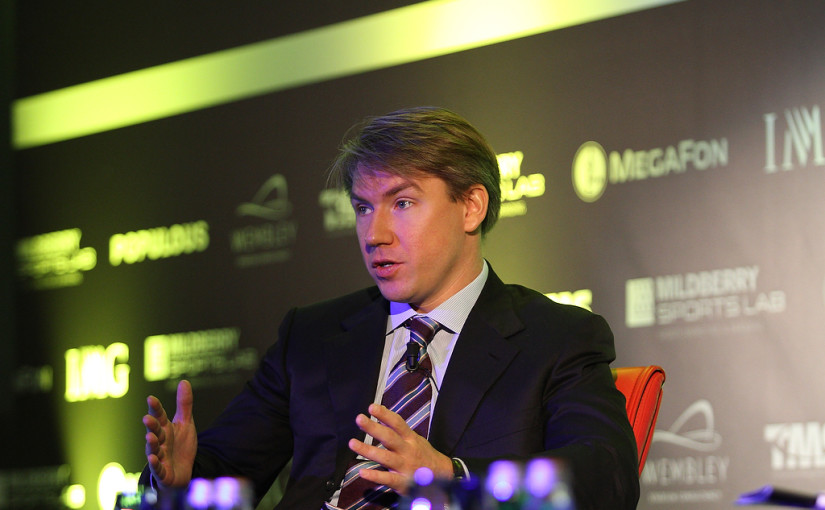By Andrew Warshaw at the Dolder Grand in Zurich
November 7 – The selection of host cities for the 2018 World Cup is being brought forward to next year instead of 2013 to leave more time for preparation, Alexey Sorokin, chief executive of the Organising Committee, revealed here today.
In a wide ranging address to the International Football Arena, Sorokin, the public face of Russia’s landslide victory 11 months ago, says infrastructure is already being upgraded six months after the ballot but admits he is still troubled by those who see the country as a haven for corruption.
“The World Cup presents a huge opportunity for our country to change,” said Sorokin.
“We didn’t want to be dormant and started work straight away after winning the bid.
“We have persuaded FIFA to let us move the date of the host city selection to autumn 2012.
“It’s something we will all benefit from.”
Sorokin conceded that while a number of challenges lay ahead, Russia would not break a single promise made to FIFA.
Nor, he said, were they the novices some have made them out to be.
“It is no secret that the World Cup is a very complex event,” said Sorokin.
“We are not clueless but we are learning as we go along.
“We made it quite obvious that we did not have enough infrastructure to host the World Cup tomorrow, and we still admit it.
“But what is important is that we have already got started.”
He made a significant pledge over the thorny issue of visas.
“We hope to get rid of visas by 2018, possibly sooner,,” Sorokin said.
“But as we keep pointing out, there are always stereotypes saying bad things.
“For some reason these are the focus of everyone’s attention rather than the progress we have made.
“It’s these kind of things we have to overcome. If a foreign company is providing a service, that’s fine.
“If it’s a Russian company, it seems that’s corruption.
“It’s these things that get in the way of Russia’s positive image.”
Whilst acknowledging that the Russian sports and hospitality markets were “not mature enough” and badly needed foreign expertise, on the ground there were already significant pointers.
Since the since the announcement of Russia as hosts, said Sorokin, the attendance of kids playing football in sports schools had increased by 30 per cent.
“This is only the beginning,” he said.
“By 2018 we must have trained and qualified personnel, administrators, coaches and managers.”
Sorokin also believes his country would still have won last December’s ballot even if it had been in the hands of FIFA’s full membership.
Amid allegations of collusion surrounding the vote for both the 2018 and 2022 World Cups, FIFA President Sepp Blatter has since declared that the Executive Committee would be stripped of its right to choose host nations, with future ballots being taken by the entire 206-member FIFA membership.
Sorokin claims that even if the new format had been applied six months ago, Russia would still have come out on top.
“It would certainly have meant a lot more work but I still think we would have won,” he said.
“People who voted for us in the executive are representative of the overwhelming opinions in their Confederations.”
Contact the writer of this story at zib.l1745177563labto1745177563ofdlr1745177563owedi1745177563sni@w1745177563ahsra1745177563w.wer1745177563dna1745177563
Related stories
November 2011: “We are in a different mode” now head of Russia 2018 to tell IFA

